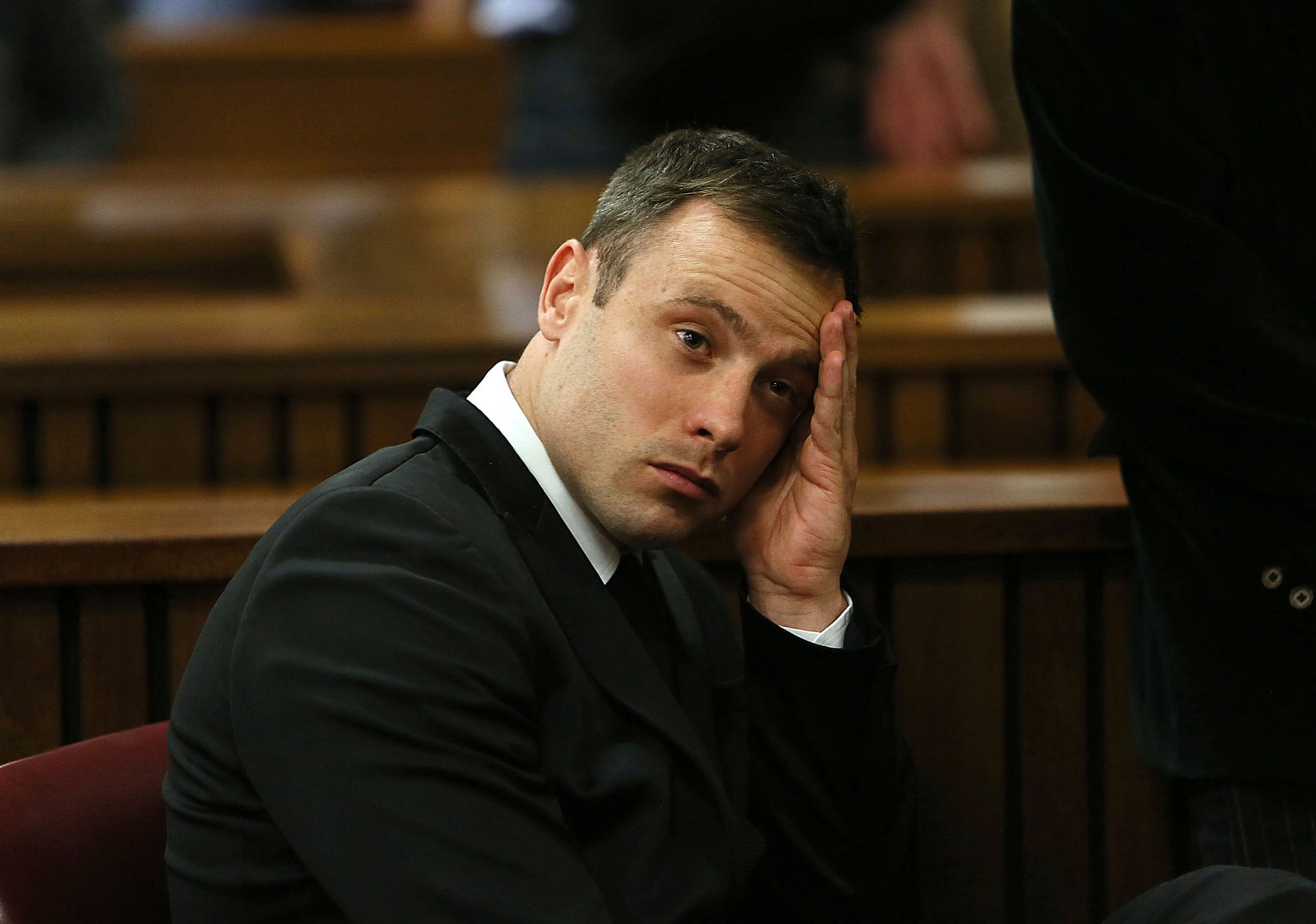Oscar Pistorius: South African Paralympic champion who murdered his girlfriend could be up for parole
The athlete will first have to meet the parents of his girlfriend Reeva Steenkamp, who he killed in 2013

Your support helps us to tell the story
From reproductive rights to climate change to Big Tech, The Independent is on the ground when the story is developing. Whether it's investigating the financials of Elon Musk's pro-Trump PAC or producing our latest documentary, 'The A Word', which shines a light on the American women fighting for reproductive rights, we know how important it is to parse out the facts from the messaging.
At such a critical moment in US history, we need reporters on the ground. Your donation allows us to keep sending journalists to speak to both sides of the story.
The Independent is trusted by Americans across the entire political spectrum. And unlike many other quality news outlets, we choose not to lock Americans out of our reporting and analysis with paywalls. We believe quality journalism should be available to everyone, paid for by those who can afford it.
Your support makes all the difference.Oscar Pistorius, the South African Paralympic runner who was imprisoned after a lengthy trial for killing his girlfriend, is likely to soon be considered for parole – but he must first meet with her parents.
The 34-year-old double-amputee athlete, who competed at the 2012 Olympics, was convicted of murder for shooting model and his then-girlfriend Reeva Steenkamp multiple times through a locked toilet door at his home in 2013.
In 2014, Pistorius was sentenced to five years in prison for manslaughter but was later found guilty of murder in 2015. He was eventually sentenced to 13 years and five months in prison.
He has been eligible for parole since July.
He claimed at the trial that it was a “tragic accident” where he mistook Steenkamp for a dangerous intruder.
Under South African law, the athlete is eligible for parole after having served half of his sentence. However, he has to first participate in a process called “restorative justice”, which provides an opportunity “for parties to reconcile or an apology”.
The South African department of correctional services said they are talking to the Steenkamp family to set up a meeting.
A parole hearing for Pistorius, scheduled last month, was cancelled after a meeting between the Steenkamp family and him could not be arranged.
Barry and June, Steenkamp’s parents, have asked for an in-person meeting with Pistorius under South Africa’s victim-offender dialogue policy, before he is considered for early release from prison.
“They [Barry and June] feel that Reeva has got a voice. They are Reeva’s voice, and they owe it to their beloved daughter,” the Steenkamps’ lawyer Tania Koen told the Associated Press.
The family had previously said they want to challenge Pistorius on why he shot their daughter, something they could do under the victim-offender dialogue policy, that allows for some form of closure for families of victims of crimes.
The Steenkamps would be allowed to make recommendations to the parole board, although their opinion will not be the only criteria for Pistorius’s early release.
“June has always said that she has forgiven Oscar, however that doesn’t mean that he mustn’t pay for what he has done. Barry battles with that a bit, but that is something he will have to voice at the appropriate time,” Ms Koen told public broadcaster SABC.
Julian Knight, the lawyer for Pistorius, said he was hopeful that the meeting between the athlete and the Steenkamps would take place by the end of the year.
However, according to Ms Koen, it was a “huge surprise” for the Steenkamp family when corrections services officials contacted them in October to inform them that Pistorius was eligible for parole. The family believed he would only be eligible in 2023.
“[It] opens a lot of wounds, or rips off the plasters they had put on those wounds,” Ms Koen said.



Join our commenting forum
Join thought-provoking conversations, follow other Independent readers and see their replies
Comments